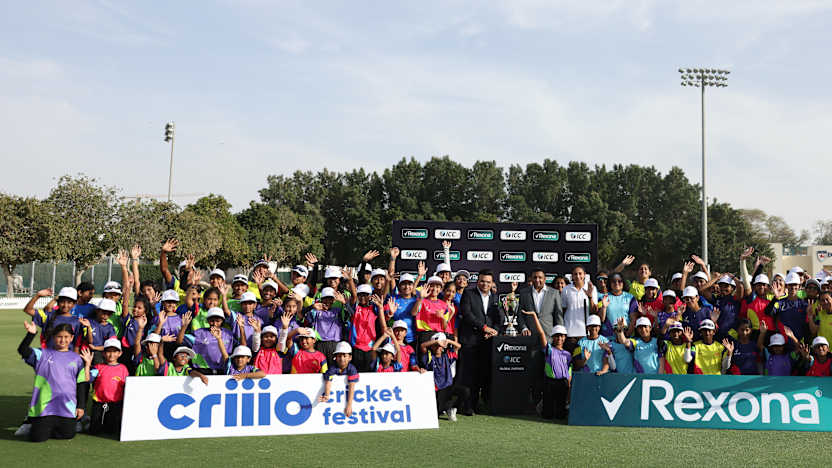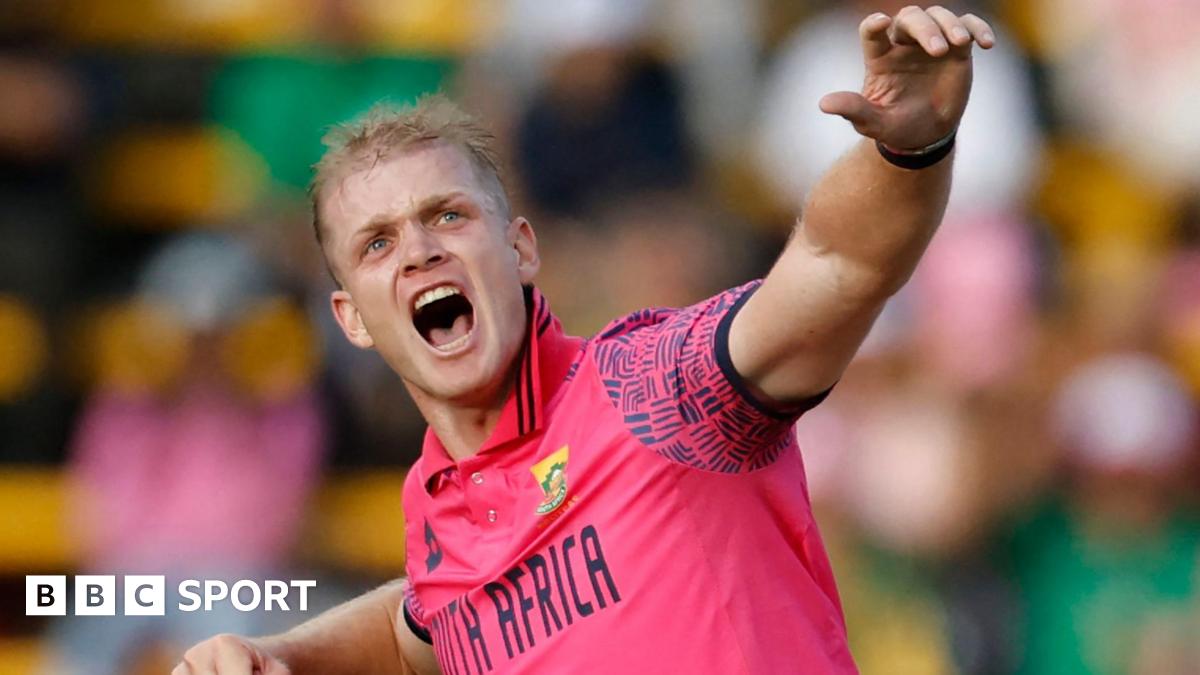Amid Pessimism There Is Hope That Jay Shah Can Positively Change Cricket

Jay Shah is the new ICC chair (Photo by Francois Nel-ICC/ICC via Getty Images)
For his entire four-year reign running international cricket, Greg Barclay was dogged by the perception of being a seat warmer for all-powerful Jay Shah. He was essentially a lame duck after being dubbed a ‘compromise candidate’ when he first ran for the role.
After vacating the role to Shah, despite being able to run one more time, years of angst were evident when a vocal Barclay let rip immediately after he stepped down as the International Cricket Council chair.
Having been a low-key figure in power, with the strings being pulled by power broker and money-spinner India, Barclay was particularly vocal over numerous issues in an interview with the UK’s Telegraph newspaper, most notably over the contentious Afghanistan women’s issue and Australia’s stance on it.
His forthrightness was quite refreshing, but does raise the question on why he couldn’t be more outspoken when he was actually in the role. As an administrator not from the Board of Control for Cricket in India, Barclay was effectively rendered ineffective.
There has been some belief that cricket’s chairperson shouldn’t be from India or even fellow powers Australia and England as former ICC and Pakistan boss Ehsan Mani once told me. “It would be healthier to have someone (the chairperson) not from the ‘big three’,” he said at the time.
But Shah is in charge and some of Barclay’s answers from the interview, which has raised eyebrows from some on the ICC board, were revealing.
“I think he’s got a great opportunity to use what he’s got in his background to help India take the game to another level, but without making it sort of under the yoke of India as well,” Barclay said of Shah.
“We’re really lucky to have India, they’re a massive contributor to the game across all the measures, but one country having that amount of power and influence does distort a whole lot of other outcomes, which is not necessarily helpful in terms of that global growth.”
For the first time since the reviled N. Srinivasan was removed as ICC chair over a decade ago, after an attempted heist of the sport’s finances to the rich countries of India, England and Australia, India has effectively taken the reins of power.
N Srinivasan had a controversial stint as ICC chair (Photo by Kunal Patil/Hindustan Times via Getty … [+]
There was Shashank Manohar, who took over from Srinivasan but he sought to diminish India’s heft and as such became a divisive figure from his country’s power brokers.
While the chair role is deemed ‘independent’, it will be understandably hard for Shah to quell his nationalism. After all, he is the son of Amit Shah, India’s minister of home affairs and the right-hand man to nationalistic prime minster Narendra Modi, and has just stepped down from his all-powerful role in charge of Indian cricket where he further tightened the country’s grip on the sport.
As the Shah era starts, there are differing sentiments. Some believe that he will rule with an iron fist and essentially run a board that will be swayed by the interests of India, who had of course pulled the levers from the background during Barclay’s reign but now it’s overt.
Those more optimistic believe Shah can effectively be an agent for change, given his heft and obvious relations with India’s hierarchy. Not just merely window dressing as Barclay was seemingly reduced to and powerless to properly negotiate with India.
“Jay has the ability to bring India into the international fold even more,” Barclay said. “There are a number of things that India could do to help unite and grow the game, including commercially helping to pool off-shore rights, using their teams to give opportunity to smaller Full Members and emerging countries, using their clout to open new territories and markets, collaborating closely with the ICC to help benefit members, as examples.”
Jay Shah (L) has taken the reins from Greg Barclay (Photo by Gareth Copley/Getty Images)
If Shah really wants to make a long-lasting difference, a legacy well beyond his tenure, then he should light a fuse under a governance review that has festered for years but remains just hot air.
As I reported last year, a “single tier of membership” proposal for the ICC was put forward as part of constitutional discussions but went nowhere. It involved scrapping seemingly archaic tiered membership headed by the 12 Full Members, who receive more funding and hold greater power through coveted spots on the 17-person ICC board.
It’s an issue that Barclay obviously thinks is vital but could do little to get off the ground. “Getting the governance right. Cricket is almost unique. You’ve got this group of Full members, and you’ve got the rest,” he said. “Surely just dispense with that and go, OK, someone’s number one and someone’s number 120.
“And you can move up and down, get ranked on performance, on and off the field. The higher up you go, the more money you get, the more exposure you get. And if you’re not performing, then you go down.”
Those on the board are waiting with bated breath to see which direction Shah will lead them.
Related
‘Listen from one ear, ignore from the other’: Former India…
India's Rohit Sharma and Mohammed Shami (AP Photo) NEW DELHI: Former wicketkeeper-batter Syed Kirmani has expressed his opinion that experienced fast bowler Mo
India faces New Zealand in budding rivalry at Champions Trophy…
State AlabamaAlaskaArizonaArkansasCa
ICC and Unilever announce landmark partnership on International Women’s Day…
The two-year partnership, kicking off at this year’s Women’s Cricket World Cup in India and running until the end of 2027, marks the world cricket governing
IPL 2025: Mumbai Indians sign Corbin Bosch as replacement for…
Mumbai Indians have signed South Africa all-rounder Corbin Bosch as a replacement for his injured countryman Lizaad Williams for this year's Indian Premier Leag











